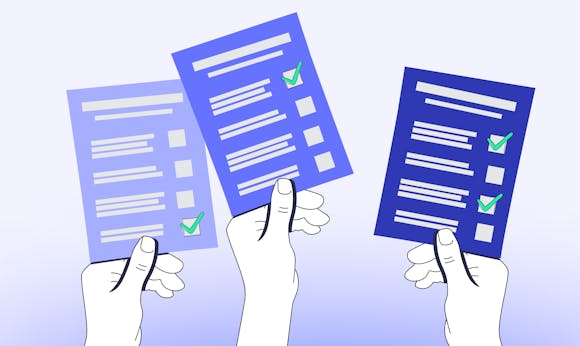
How AI Threatens Your Email Privacy - And What You Can Do About It
How AI Threatens Your Email Privacy - And What You Can Do About It
As artificial intelligence (AI) continues to evolve, so do concerns about its implications for our privacy. With AI's ability to process and analyze vast amounts of data, including sensitive, personal information, questions about how this technology affects the privacy of our email communication arise. In this article, we will delve into the ways AI can compromise your email privacy and offer practical steps to safeguard your personal information.
How AI Infringes on Email Privacy
Imagine your inbox as a digital vault filled with personal conversations, financial details, and other confidential communication. AI algorithms now manage this vault, sorting, categorizing, and even suggesting responses. However, AI isn't just a helpful assistant; it’s also a silent observer.
AI has transformed many aspects of our lives, including how we communicate via email. Integrated into many email systems, AI automates tasks, enhances sorting and filtering, and suggests responses. While these advancements undoubtedly improve efficiency, they also raise significant privacy concerns.
AI-powered email systems like Google’s GMail and Microsoft’s Outlook have the ability to scan the content of our emails, extracting valuable information for various purposes. This data extraction ranges from analyzing keywords for targeted advertising to studying patterns that predict user behavior. The more AI learns about us through our emails, the more accurately it can profile us — and the more it potentially invades our privacy.
A 2023 StartMail survey of U.S. citizens revealed that an overwhelming 95% have concerns about AI tools and their impact on personal privacy, with over 40% expressing deep concern about AI's ability to scan and analyze personal email communications. These concerns are justified, given the vast amount of sensitive information we often share via email.
More recently, AI technology is also being leveraged by cyber criminals and propagandists to develop and distribute harmful content such as phishing emails, malware, and misinformation – further compromising personal privacy.
Protecting Your Email Privacy in the Age of AI
While AI is probably here to stay, there are steps you can take to safeguard your privacy. Here are some practical strategies to help you keep your personal information secure:
Regularly Update Passwords and Use Multi-Factor Authentication (2FA): A strong, unique password combined with multi-factor-authentication adds an extra layer of security to your email account, making it more difficult for unauthorized users to gain access, even if your data is compromised elsewhere.
Verify The Sender's Identity And Email Address: This is especially important when you receive unexpected or unsolicited emails. Scammers often use deceptive tactics to impersonate trusted people or organizations, so double-check the sender's information to spot obvious phishing attempts.
Encrypt Your Messages: Ensure that your emails are encrypted, so only you and the intended recipient can access the contents of your messages. This makes it much harder for unauthorized parties, including AI-driven algorithms, to access your communications.
Opt Out of Data Collection: Review the privacy settings of your email provider and opt out of data collection wherever possible. Many platforms offer options to limit personalized ads and data sharing with third parties, but they are most likely not the default setting. While changing these settings won’t stop AI from analyzing your emails entirely, they can reduce the extent to which your data is used for profiling and advertising.
Practice Good Digital Hygiene: Be mindful of the information you share via email. Avoid sending sensitive details like financial information or personal identification unless absolutely necessary and use secure methods whenever possible. Additionally, stay vigilant for any signs of suspicious activity, such as unexpected attachments, links, or requests for personal information.
Use a Secure Email Provider: Consider switching to an email service that prioritizes privacy. Some providers offer robust privacy protections and do not scan your emails for advertising purposes. Services like StartMail are specifically designed with your privacy in mind.
By taking these proactive measures, you can better protect your email privacy and navigate the AI-driven world.
The Future of Email Privacy in an AI-driven World
As AI technology continues to advance, the challenges to our email privacy will only grow. AI-powered systems will likely become even more adept at scanning, analyzing, and interpreting our emails, potentially leading to more sophisticated intrusions into our personal and sensitive information.
In this evolving landscape, it’s essential for individuals and organizations to advocate for stronger regulations and policies that protect our rights as technology advances. One of the most effective actions you can take is to choose a secure email provider like StartMail, which prioritizes privacy and refrains from integrating AI tools into its systems. By adopting the right mindset and strategies, we can adapt and maintain control over our personal information in the age of AI.
More from the blog


How Will ChatGPT Impact Your Business's Email Security?
Continue reading
5 Benefits of Using a Secure Email Service for Your Business
Continue reading
Don’t Get Tracked Online: How to Use Email Aliases to Protect Your Privacy
Continue reading